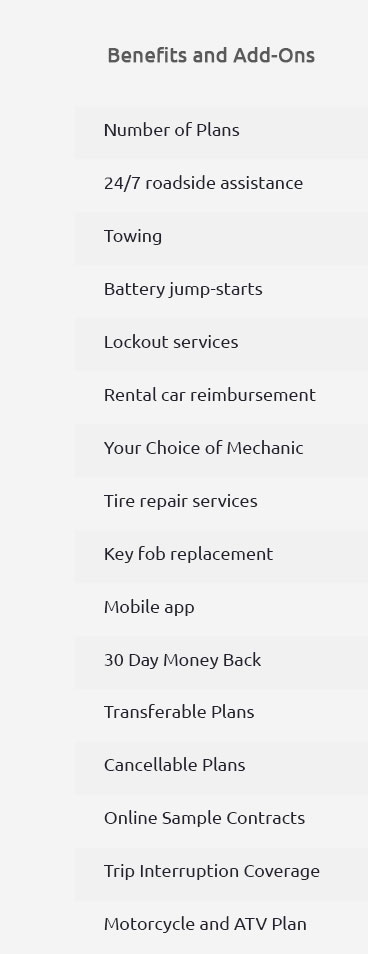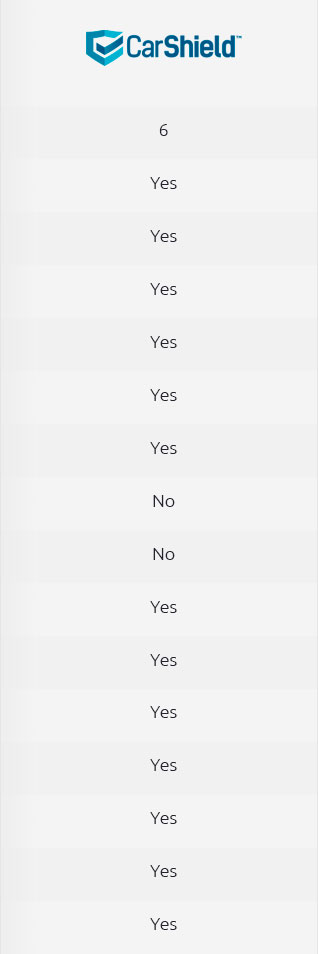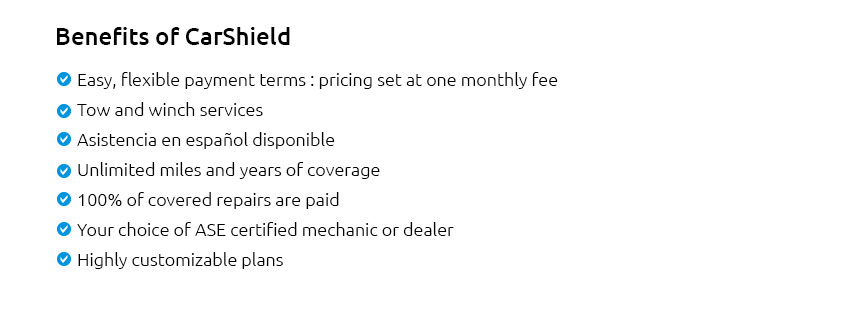 |
 |
 |
Select your vehicle to see available coverage options:
 |
 |
|||
 |
|||
 |
 |
 |
|
 |
|||
 |
|
 |
|
 |
|
 |
|
 |
|
 |
|
 |
|
 |
|

Extended Warranty Comparison: A Comprehensive Coverage GuideWhen it comes to protecting your vehicle in the U.S., understanding the nuances of extended auto warranties is crucial. These plans offer peace of mind and potential cost savings by covering repair costs that could otherwise burden your wallet. But how do you choose the right one? Understanding Extended Auto WarrantiesExtended warranties, often called vehicle service contracts, are designed to cover repairs and parts replacements after the manufacturer’s warranty expires. They're an excellent option for car owners who plan to keep their vehicles for the long haul, especially in areas like Florida where high temperatures can affect vehicle longevity. What's Covered?Most extended warranties cover major components such as the engine, transmission, and drivetrain. Some plans offer additional coverage for electrical systems, air conditioning, and even roadside assistance. It’s essential to read the fine print to understand what’s included.
Benefits of an Extended WarrantyWhy should you consider an extended warranty? The benefits are compelling. Peace of MindDrive with confidence knowing that unexpected repair costs are covered. Whether you're driving through the busy streets of New York or the expansive highways of Texas, an extended warranty ensures you're never alone when issues arise. Cost SavingsRepair costs can be unpredictable and often expensive. An extended warranty can save you thousands in the long run. For example, the average cost of replacing a transmission can be upwards of $3,500. For those considering a premium vehicle, checking the land rover extended warranty price can provide a cost-effective solution for luxury car maintenance. Choosing the Right WarrantyWith numerous options available, selecting the right warranty can be daunting. Here’s a quick guide:
Luxury car owners might also explore options like the lexus extended car warranty for tailored coverage. FAQWhat is the difference between a manufacturer's warranty and an extended warranty?A manufacturer's warranty is included with a new vehicle purchase and typically covers the first few years or miles of ownership, focusing on manufacturing defects. An extended warranty, on the other hand, is purchased separately and provides coverage after the manufacturer’s warranty expires, often including additional benefits like roadside assistance. Are extended warranties worth the investment?For many car owners, especially those keeping their vehicles long-term, extended warranties can be a wise investment. They offer financial protection against expensive repairs and provide peace of mind. However, it’s crucial to choose a plan that fits your needs and budget. Can I purchase an extended warranty at any time?Most providers allow you to purchase an extended warranty at any time, though it's typically more cost-effective to buy before your manufacturer's warranty expires. Keep in mind that older vehicles or those with higher mileage might have limited options. In conclusion, navigating the world of extended warranties can seem complex, but with careful comparison and consideration, you can find a plan that best suits your vehicle and lifestyle needs. https://www.marketwatch.com/guides/car-warranty/best-extended-car-warranty/
Best Extended Car Warranty Companies of 2025 - Endurance Best Comprehensive Coverage - autopom! Best Customer Service - Carchex Best Industry ... https://money.com/best-extended-car-warranties/
If you're looking for coverage on a car that goes beyond the auto manufacturer's warranty, an aftermarket third-party extended warranty may ... https://www.caranddriver.com/research/a32766838/best-car-warranty-quick-comparison-guide/
Extended warranties can vary, but they typically cost between $1800 and $4000, according to Consumer Affairs. That typically comes out to monthly payments from ...
|